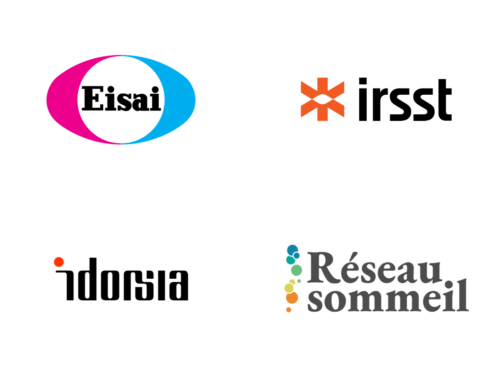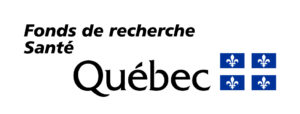Context of EDI issues in sleep research
Veuillez que les informations ci-dessous concernent l’appel à projets pilotes – Sommeil et santé et sécurité du travail ayant eu lieu à l’hiver 2024 – printemps 2025.
Goals
The Quebec Sleep Research Network is proud to announce its first Occupational Health and Safety (OHS) call for pilot projects. The program will provide funding to encourage new projects on sleep, circadian rhythms and OHS. This call for projects is designed to encourage participatory research and knowledge transfer projects. It also encourages intersectoral and inter-institutional projects, as well as those conducted in collaboration with partners and clinicians.
Research themes accepted
The Sleep Network wishes to support projects targeting sleep and/or circadian rhythms with an OHS perspective. Here is a non-exhaustive list of themes identified with partners that projects can target. Please note that in this list, "sleep disorders" refers to all sleep disorders, including insomnia, sleep apnea, central hypersomnia syndromes, phase advance and phase delay syndromes, etc.
Mental health, OHS and sleep disorders
- Effects of the nature or of certain characteristics of work on sleep ;
- Effects of poor sleep or sleep disorders on the worker (e.g. drowsiness, health, accidents) and on the job (e.g. errors at work, absenteeism) ;
- Diagnosis and management of sleep disorders in the workplace ;
- Training for healthcare professionals in sleep and OHS ;
- Workplace accomodations for people with sleep disorders ;
- Sleep disorders as a barrier to rehabilitation and return to work.
Atypical work schedules
- Night shifts and road accidents ;
- Atypical work schedules and the use of performance-enhancing substances or medication ;
- Labor rights (rest time between shifts, obligation to be available for on-call work) ;
- Interventions to improve sleep and alertness in context of atypical work schedules ;
- Napping as a means of protecting workers.
The place of sleep in the workplace
- Cost-benefit analysis of individual and organizational interventions targeting sleep (promotion or prevention of disorders) in the context of OHS risks ;
- Challenges in diagnosing and managing sleep disorders in the workplace: Tools for promotion, prevention, screening or intervention ;
- Sleep, fatigue and drowsiness as psychosocial risks in OHS ;
- Sleep among executives and managers ;
- Social representations of sleep from an organizational point of view.
We encourage teams to consider issues of equity, diversity and inclusion in their proposal (click on the button above entitled "Context of EDI issues in sleep research" to find more).
Budget
The Sleep Network has brought together a group of financial partners to support this competition. We currently have a budget envelope of around $180,000, which will enable us to fund at least 6 pilot projects (maximum of $30,000 per project). It is possible that the budget envelope increases in the coming months, allowing for the funding of additional projects.
Eligibility
- The person submitting the application (principal investigator) must be affiliated with a managing institution in Quebec (according to the rules of the FRQ), must become a member of the Network and must have researcher status according to the general common rules of the Fonds de recherche du Québec.
- A student, clinician or research professional may apply, provided he or she is accompanied by a principal investigator who meets the Fonds de recherche du Québec's criteria and becomes a member of the Sleep Network.
Priority will be given to early-career researchers, to enable them to gather preliminary data for grant applications to provincial, federal and international agencies. A second priority will be given to mid-career and experienced researchers who are launching new projects and need preliminary data.
Please note that funds transferred to the principal investigator's institution cannot subsequently be transferred to another institution. Eligible expenses are those recognized by the Fonds de recherche du Québec. Click here for more details on eligible expenses.
The deliverable expected at the end of the project is a funding application to provincial or federal funding agencies or other relevant organizations.
How to submit an application
Two documents are required and should be sent to: [email protected]. Applications must be submitted no later than 4PM on January 31, 2024.
1) Project description (maximum 5 pages, single-spaced, 2.5 cm margins, standard font, font size 12) which includes:
- Project summary: Problem, conceptual framework, methodology including analysis strategies, timeline and team composition (affiliations, role and career level) ;
- Adequacy of project with stated objectives ;
- Presentation of the collaborative process and integration of the next generation ;
- Expected benefits, results and knowledge transfer ;
- Consideration of EDI aspects ;
- Timeline
2) Budget and justification (maximum 1 page, single-spaced, 2.5 cm margins, standard font, font size 12)
Evaluation criteria
1) Scientific (60 points)
- Rigour and scientific quality of the project, including consideration of EDI aspects ;
- Team composition and integration of the next generation to promote interdisciplinary and intersectorality ;
- Project feasibility (budget and schedule in line with the objectives).
2) Relevance and impact (40 points)
- Suitability of the project for the objectives set out in the call for projects ;
- Project relevance and impact ;
- Quality of knowledge transfer initiatives and participatory processes.
Submissions will be evaluated initially by the Scientific Evaluation Committee. This committee will be composed of peers and will include at least one intern/student. Submissions accepted by the scientific evaluation committee will then be evaluated by the relevance and impact evaluation committee. This committee will be made up of partner representatives (e.g. employers, private sector, unions, citizens).
Timeline of the competition
- November 2024: Launch of the call for pilot projects
- January 31, 2025: Deadline for project submissions
- February 2025: Scientific and relevance evaluation
- March 14-16, 2025: Announcement of projects funded during the Canadian Sleep Society's national conference
- Spring 2026: Meeting to share preliminary results of projects funded by the Sleep Network and its partners
Scientific and financial report
No later than 6 months after the end of the project, a scientific report (maximum 1 page) presenting the spin-offs of the project must be sent to [email protected]. This report enables Network to document the impact of its activities.
A financial report must be produced by the managing establishment at the end of each fiscal year.
This opportunity is made possible by financial contributions from Eisai Inc, Idorsia Pharmaceuticals Ltd, the Institut de recherche Robert-Sauvé en santé et sécurité du travail and the Sleep Network.

The activities of the Sleep Network are made possible by a grant from the Fonds de recherche du Québec.

Dernière mise à jour: 9 mai 2025
Contact us
Quebec Sleep Research Network
CIUSSS du Nord de l’Île-de-Montréal
5400 boul. Gouin Ouest, local J-5105
Montréal, Qc.
H4J 1C4
